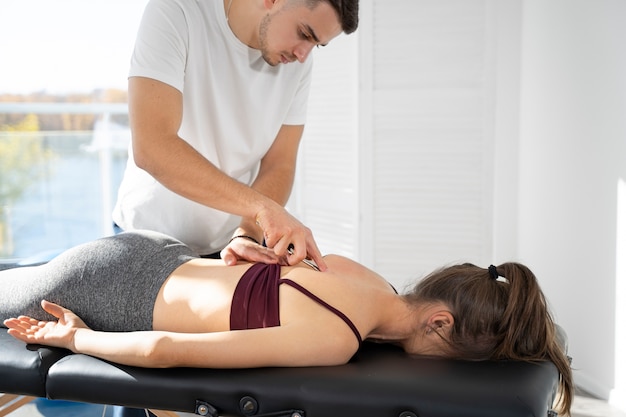
The journey to sobriety can be tough, both physically and mentally, so it’s important to find various methods to support yourself during this change. In this guide, we’ll look at the top five ways to help your body while going through drug and alcohol rehab, focusing on nutrition, fitness, and holistic approaches.
First, healthy eating is crucial when you’re recovering from addiction. While it might be tempting to turn to comfort foods, proper nutrition is key to a successful recovery. Your body needs vital nutrients to heal and manage the challenges of quitting drugs or alcohol. Here are some dietary tips to help:
– A balanced diet is essential. Make sure to include a variety of fruits, vegetables, lean proteins, whole grains, and healthy fats in your meals. These foods provide the vitamins and minerals your body needs to recover.
– Staying hydrated is often overlooked but very important. Drinking enough water helps flush out toxins and supports overall bodily functions, which is especially crucial when adjusting to sobriety.
– Avoid highly processed and sugary foods because they can cause blood sugar spikes and crashes, which might trigger cravings. It’s best to limit these foods during recovery.
Holistic approaches and mindfulness techniques can also greatly enhance your recovery process. Methods like mindfulness meditation can help manage stress, cravings, and emotional ups and downs. By staying present and observing thoughts without judgment, you can better control your reactions and choices. Many rehab centers teach these techniques.
Another holistic practice is yoga or Tai Chi, which combine physical postures, breathing exercises, and meditation. These activities improve flexibility, balance, and overall well-being while also calming the mind and reducing cravings.
Acupuncture, an ancient practice that involves placing thin needles in specific body points, can help manage withdrawal symptoms, reduce anxiety, and ease pain.
Expressive arts therapy, including activities like visual arts, music, and dance, provides a creative way to explore and communicate emotions. This can be a therapeutic and safe outlet for your feelings.
Regular physical activity is another powerful tool in recovery. Exercise not only rebuilds and strengthens your body but also improves your mood by releasing endorphins. This can help combat depression and anxiety, common issues during recovery. Exercise also reduces stress, helps manage cravings, and lowers the risk of relapse by promoting relaxation and a sense of well-being.
Working out regularly can also improve sleep patterns, which are often disrupted by addiction. Better sleep enhances rest and cognitive function. Exercising promotes holistic healing, benefiting both body and mind. The sense of accomplishment from completing workouts boosts self-esteem.
Additionally, group fitness activities or team sports can foster social connections, providing community and support, which are crucial, especially in the early stages of recovery.
It’s important to customize your fitness routine to your specific needs and physical condition, and always consult with your healthcare team before starting a new exercise program. They can recommend the right balance of aerobic, strength, and flexibility exercises based on your health status.